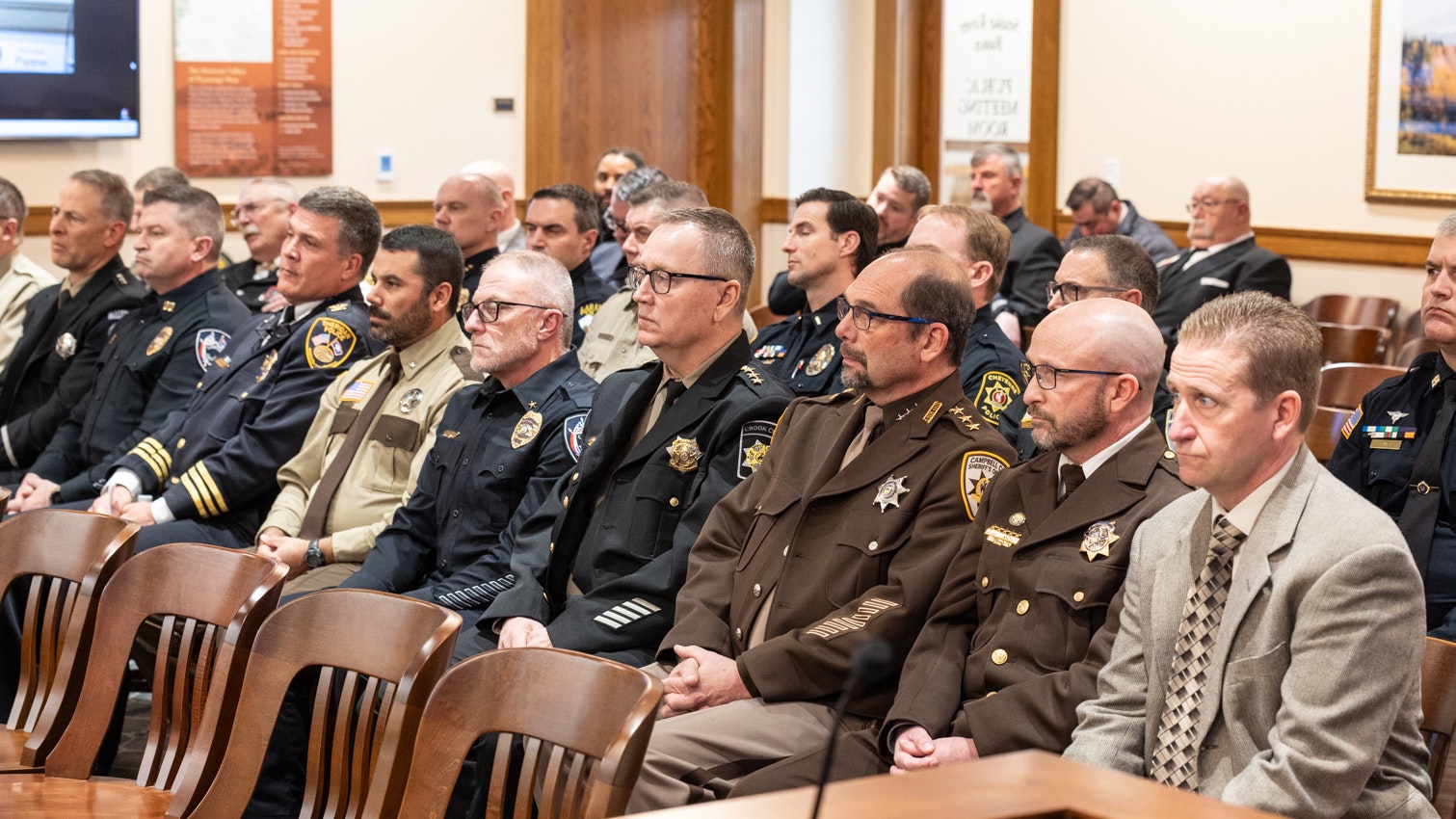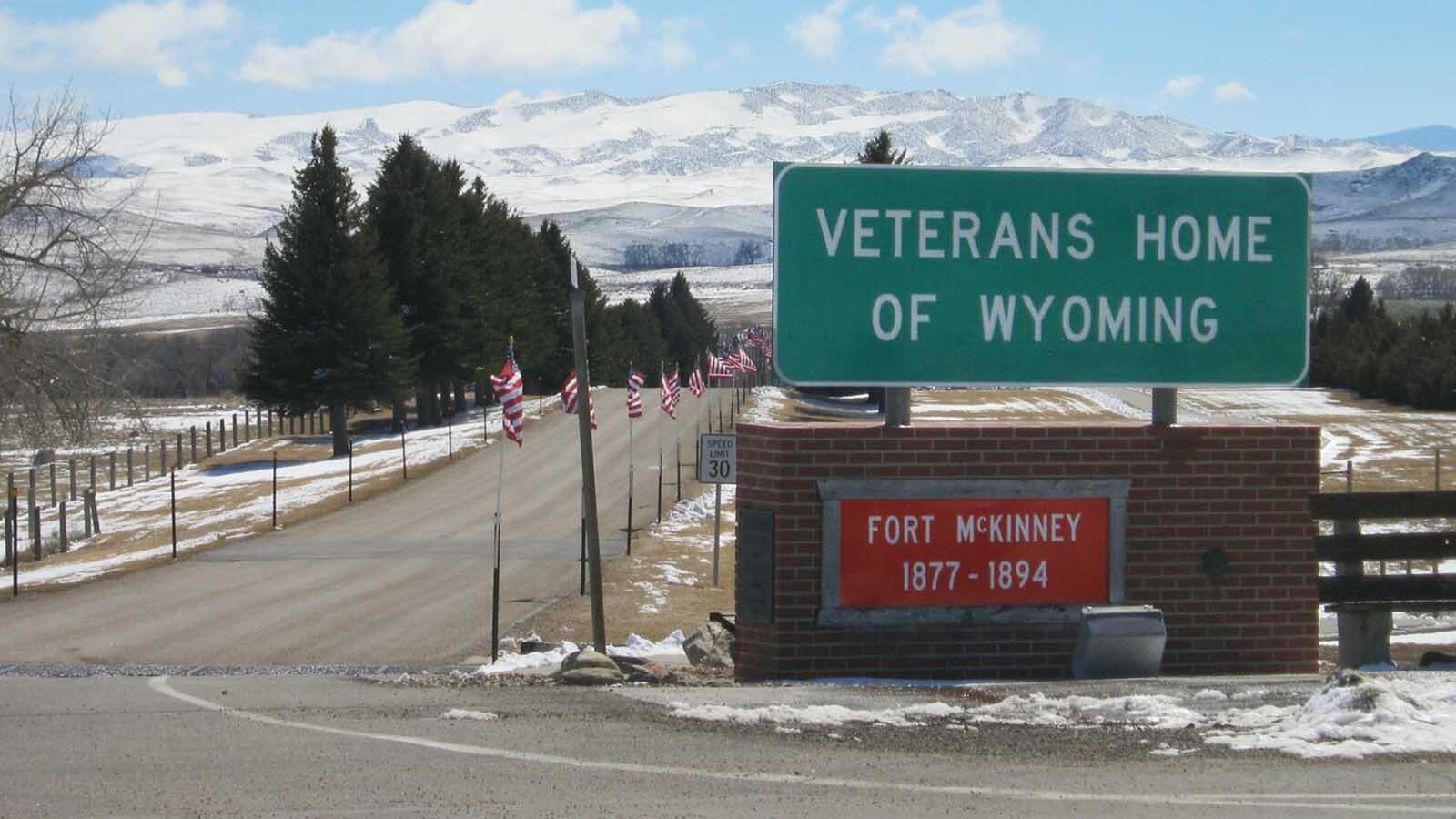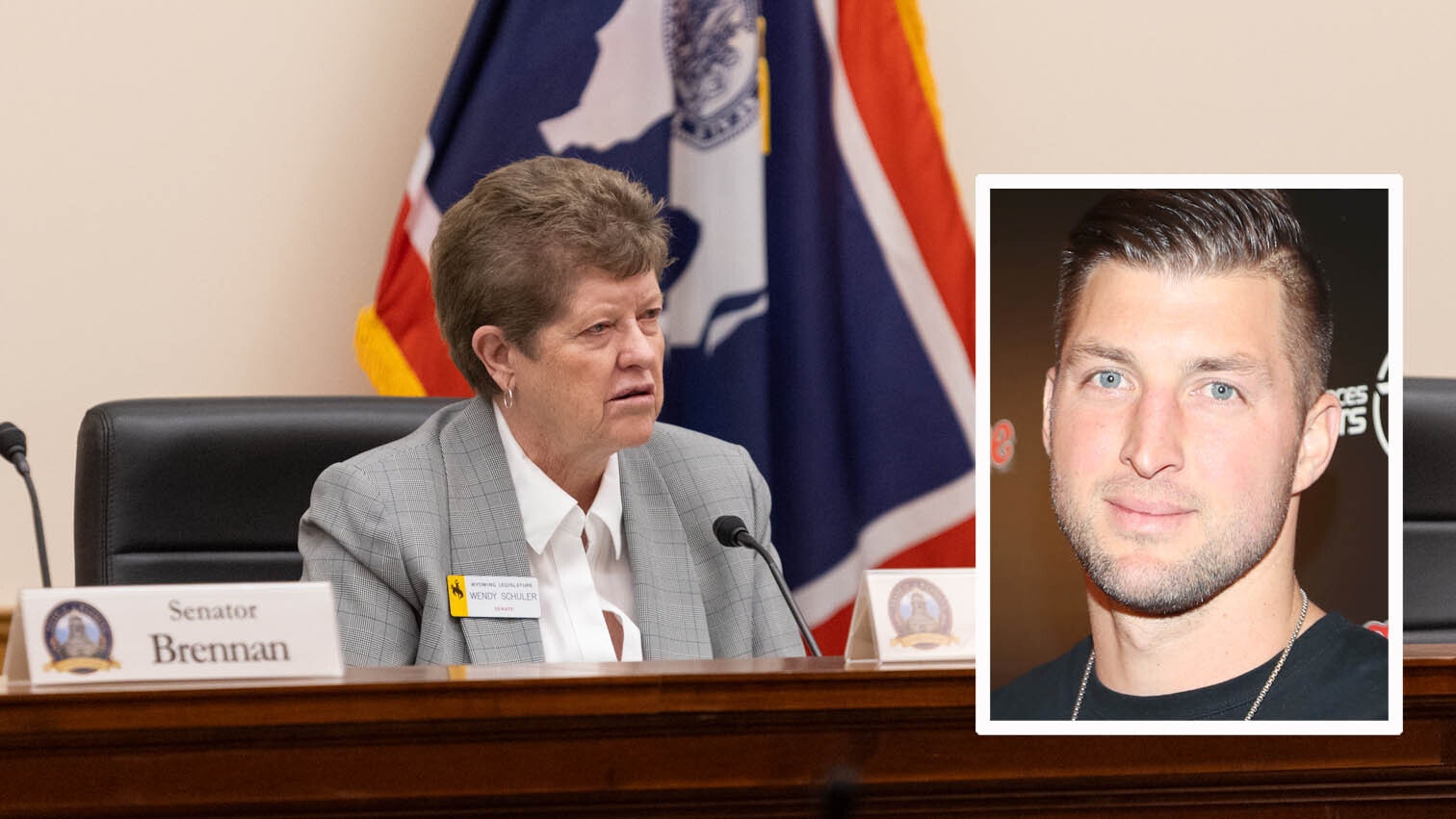CHEYENNE — Standing inside the Capitol on Friday, Gov. Mark Gordon declared a "welfare emergency" in Wyoming while ordering up to $10 million in state money be allocated for emergency food assistance if federal benefits run out "due to the Schumer shutdown."
The governor announced two executive orders: one to backfill Wyoming’s stalled Supplemental Nutrition Assistance Program (SNAP) with state emergency funds; and another to exempt Wyoming from having to supply SNAP money for junk food.
The orders came amid concerns the federal program won’t fill food cards Nov. 1 as scheduled during the federal shutdown. Though two courts have ordered the Trump administration to revive the program, it’s unclear when the benefits will distribute and if the administration will appeal the orders.
In response to those concerns, Gordon declared a state of "public welfare emergency" recognizing Congress’ inability to resolve the issue. That order frees up about $1.4 million per week in emergency money that will go toward providing food for Wyoming residents in need.
“We are going to be able to provide funding that will go to churches and philanthropic organizations, food banks, schools, etc., to be able to provide food to those who need it,” Gordon said.
Paired with that order is another executive order directing Department of Family Services Director Korin Schmidt to apply for a federal waiver that will disqualify “low-nutritional food” from being eligible for SNAP benefits.
That topic had until recently been making its way through the state Legislature and was set for discussion in the coming budget session.
“We want to make sure that our families, veterans, seniors and children get nutritious, wholesome food,” Gordon said.
Schmidt said she hopes the waiver will preserve Wyoming’s low rate of fraud and abuse through the SNAP program.
“The waiver process is prescribed by the USDA, so there’s an application process,” she said. “We care about the program, making sure that it’s handled appropriately.”
Going Hungry
The governor’s emergency declaration is target at providing assistance for those who rely on SNAP for their meals until the shutdown is resolved. After that point, Gordon said the emergency will be resolved and state money will no longer be used.
State law allows the governor to draw up to $10 million from the Legislature’s savings account if a “public welfare emergency” involving an unforeseeable event requiring immediate action exists.
The Wyoming Department of Family Services (DFS) is also coordinating with the Food Bank of Wyoming to connect those in need of food with local food banks. DFS only manages SNAP and is not responsible for funding the program, however.
DFS can’t dispense payments to beneficiaries on Nov. 1 and ask for reimbursement later, because the federal government sends money directly to the benefit cards, DFS public information officer Kelly Douglas told Cowboy State Daily on Tuesday.
More than 26,000 people, or 5% of the state’s population, rely on SNAP benefits, according to the governor’s office.
Junk Food
While the Joint Labor, Health and Social Services Committee this month had approved a bill by state Rep. Jacob Wasserburger, R-Cheyenne, to apply for a federal SNAP waiver, Gordon’s executive order bypasses the legislative process, which could have stretched into March, and immediately begins the application process.
Schmidt during that hearing called on the committee to make the definition of candy airtight to avoid confusion with other types of foods, such as granola bars that include chocolate.
Several states across the western U.S. have already signed similar junk food waivers, including Colorado, Nebraska, Idaho and Utah, according to an August release from the U.S. Department of Health and Human Services (HHS).
If granted, the waiver will restrict SNAP beneficiaries from buying sugary beverages, candy and other “foods that offer little or no nutritional value.”
SNAP Shortcomings
Wyoming’s food stamps program is also being threatened by the One Big Beautiful Bill spending omnibus that passed through Congress in July. Part of that measure made it so Wyoming is now required to cover 75% of the program’s administrative costs, up from 50%.
This shift means Wyoming is responsible for finding an extra $3.4 million for the program during a budget session that will see several government agencies and service providers jockeying for crucial financial support.
Joint Appropriations Committee Chairman Rep. John Bear, R-Gillette, told Cowboy State Daily in September that while the amount is relatively small, it will still be difficult to find in the state’s budget while balancing a goal to cut wasteful spending.
“In a multibillion-dollar biennial budget, $3 million is not that much, but $3 million here and $3 million there adds up, and we have a lot of programs that we’re looking at and all of them are important,” he said. “The question is which ones are more important than others?”
Community Help
The governor in a Tuesday press release called on people to help one another find food amid the lapse in benefits.
“We in Wyoming know how important it is to solve problems which is why I know food pantries, churches and other organizations across the Cowboy State are ready to step up and help,” Gordon wrote. “We are working on ways to provide assistance. In the meantime I have no doubt that Wyoming citizens will help by donating to their local food pantry, church pantry and charitable organization.”
The shutdown has led to a groundswell of community support, including from businesses offering free food to those affected. Among them is Wyoming-founded Taco John’s, which told Cowboy State Daily it would give guests one free “community support meal” of a beef or bean burrito and junior Potato Olés on Friday through Sunday.
“We’re proud to be giving back to our communities who have supported us since 1969,” President & CEO of Taco John’s International Heather Neary wrote via email. “Our vision is to be the community’s first choice for tacos and burritos, and this effort is a reflection of that commitment.”
Wyoming Rescue Mission is also stepping up to help by spreading the word that it is offering free hot meals three times per weekday and twice daily on weekends.
“With the federal government shutdown, neighbors who depend on SNAP face uncertainty – meals may become harder to access, food budgets could shrink, and local food support services — like those at the Wyoming Rescue Mission — will become even more critical,” the group told Cowboy State Daily. “The mission does not receive government funding and free meals and services are made possible by caring and generous community partners.”
Jackson Walker can be reached at walker@cowboystatedaily.com.






